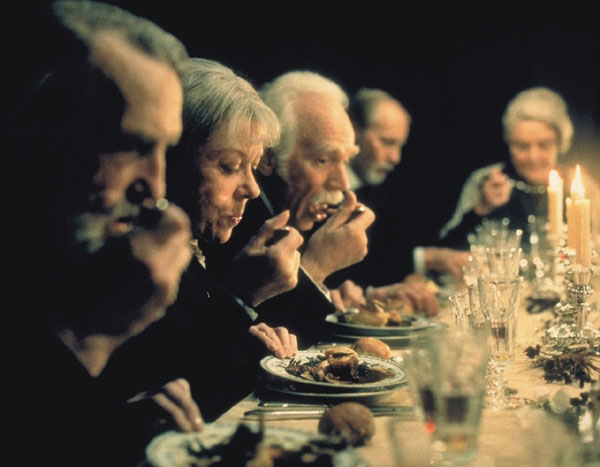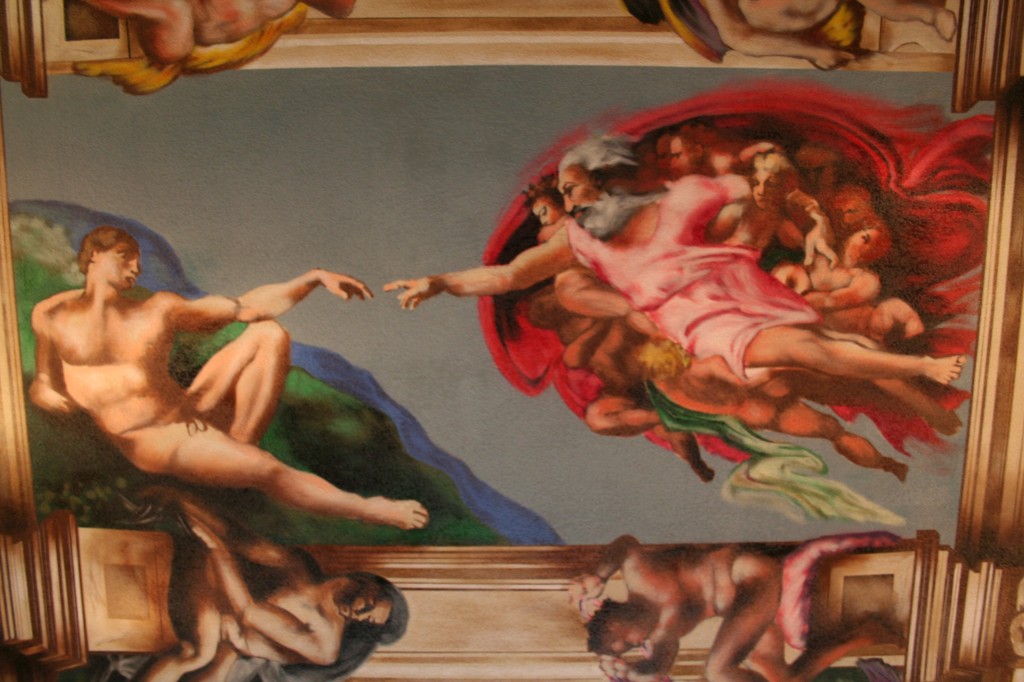
Have you seen the marvelous movie Babette’s Feast? If not, rent it, download it, or borrow it, for there’s no better preparation for the Thanksgiving holiday than this film. Set in the nineteenth century, it tells the seemingly simple story of a French woman refugee who arrives in an isolated Danish village and becomes a housekeeper for two unmarried sisters. After a number of years, the sisters want to plan a dinner to celebrate the 100th anniversary of the birth of their father, a stern man who had been pastor of the local church. Babette takes charge of the preparation for the meal. Unbeknownst to the sisters, she spends the entirety of a financial windfall she had received on creating an extravagant, sumptuous meal for the people of the village. By the time the repressed Danish villagers tuck into their dinners, you feel like you’re sitting right there with them, sharing in their transformation through the miracle of food prepared with love and skill.
I thought of Babette’s Feast while reading this piece from Aeon Magazine: A Taste of the Divine. In it, Julian Baggini writes of a meal he enjoyed at one of the world’s best restaurants, Frantzen/Lindeborg in Stockholm. His excuse was that he is writing a book on food and philosophy, but he also admits he loves to eat. And eat he did—a 19-course tasting menu that makes him wax eloquent about why such a meal can be worth the cost:
Certain aesthetic experiences of high art create a sense of transcendence, a feeling that you are somehow transported beyond the merely mortal realm to taste something of the divine. Indeed, that is precisely why some people believe art is so important.
I would argue the other way. The problem with art is that it can fool us into forgetting that we are mortal, flesh-and-blood creatures. The culinary arts, on the other hand, remind us that we are creatures of bone and guts, even as they delight us with creations no other animal could ever produce. Fine food is about the aesthetic of the immanent, not the transcendent. A mouthful of Frantzén’s diver scallops, truffle purée and bouillons transports you to heaven while never letting you forget it is a perishable place on Earth. Through experiences like these you come to know the potential intensity of being alive, what it means, as Thoreau recommended, to suck out all the marrow of life.
So yes, eating is ephemeral, but some experiences are so extraordinary they are worth it for their own sakes. Life is not just about such peak moments but it is very much enriched by them. ‘Mere experiences’ can also provide a kind of first-hand knowledge of the heights to which skill, flair and determination can take us.
Baggini concludes with this:
The meal I had was without doubt the most incredible eating experience of my life. So many dishes were outstanding that there came a point at which the very word was meaningless. How can more things stand out than not? Perhaps that’s why, for all the wonder of the evening, it really would be wrong to do this kind of thing too often. The extraordinary should not be allowed to become ordinary, no matter how good it is…
So as the bill arrived and, along with it, a wax-sealed brown envelope containing a typewritten copy of the menu with a list of the wines we have drunk, two questions arose. Could I justify the cost? And was it worth it? Despite the case I’ve made, I’m not sure I can confidently answer the first in the affirmative. But to the second, my heart and head both scream yes. It’s a contradiction some will find easier to digest than others.
I remember a few meals like this in my life (well, not so expensive, but dinners where the food was truly extraordinary). One in particular is one of my treasured memories: it happened in Sonoma County in California, when a group of friends and my husband and I ate for several hours at an Italian restaurant in the countryside. It wasn’t just the exceptional food and wine, but also the laughter, the stories, and how we all reconnected as friends after a long time apart (it also helped that the handsome waiter flirted outrageously with all the women at the table). The experience made me realize why Jesus used one metaphor more than any other to describe what God wishes for us: the Kingdom of Heaven, he told his disciples, is a banquet.











